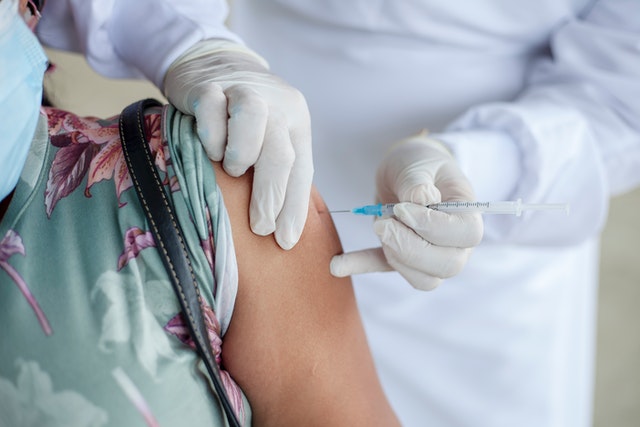
With August being National Immunization Awareness Month (NIAM), it’s a good time to check if your immune system is up to date. This annual campaign reminds us that vaccination is significant regardless of your age. Getting vaccinated can protect you and your family, prevent outbreaks, and rid diseases and their severe consequences.
Defining the Terms
Immunity is protection from an epidemic. If you’re “immune” to a virus, you may be exposed without getting infected.
A vaccine is a product that causes your immune system to generate resistance to a particular disease, protecting you from the illness. Vaccine administration routes include the mouth, nose, or needle injections into muscle tissue or skin layers.
Vaccination is the introduction of a vaccine into your body to generate immunity to a certain disease.
Immunization is the process by which you get protected from a disease through vaccination. The terms Immunization and vaccination are often used interchangeably.
Medicare Vaccine Coverage
Medicare Part D pays for most vaccines and immunizations, except those that Part B always covers.
Part B Vaccines
- Influenza (flu) shots — including the seasonal flu vaccine AND the H1N1 (swine flu or “pig influenza”) vaccine
- Pneumococcal (pneumonia) shots
- Hepatitis B shots – for medium or high-risk patients
Also, Medicare Part B covers vaccines related to injury treatment or direct exposure to an infectious virus or disease. For instance, it will pay for a rabies shot — administered by a doctor — if a dog bites you, or a tetanus shot if you step on an old nail.
How Does Medicare Vaccine Coverage Work?
To receive a vaccination that Part B doesn’t cover, beneficiaries depend on their Part D plan or a Part C plan that includes prescription drug coverage. These are referred to as Medicare Advantage Prescription Drug plans, or MAPD.
According to the CMS, all Medicare Part D plans have to cover commercially available vaccines “when reasonable and medically necessary to prevent illness.” But the coinsurance, copay, deductibles, or premiums will vary across plans, and so will the rules for administering and paying for the vaccination.
Part D Vaccines
Prescription drug plans frequently cover the following vaccinations:
- Tdap vaccine
- Meningococcal vaccines
- Shingles (Herpes Zoster) vaccine
- Some self-administered insulin shots
- MMR — Measles, Mumps, & Rubella — vaccines
- BCG (bacille Calmette-Guerin) vaccine for tuberculosis
- Hepatitis A and Hepatitis B vaccines for low-risk beneficiaries
Know that Medicare doesn’t cover travel-related vaccines.
More On Part D Vaccinations
Prescription drug programs use formularies (lists) to identify covered drugs. However, these lists are occasionally outdated. Your plan might cover a new preventative vaccine that isn’t shown yet.
Part D plans can have specific rules, like:
- step therapy
- prior authorization, and
- quantity limits.
Looking for clarity? You can contact Trusted Senior Specialists to see what shots a drug plan covers, where to get them, and a price estimate for the immunizations.
The Extra Help Program
Thanks to a federal assistance program, low-income beneficiaries can afford prescription drugs and vaccinations by proxy. It’s called Medicare Extra Help.
.png?width=129&height=63&name=second_logo%20(1).png)
